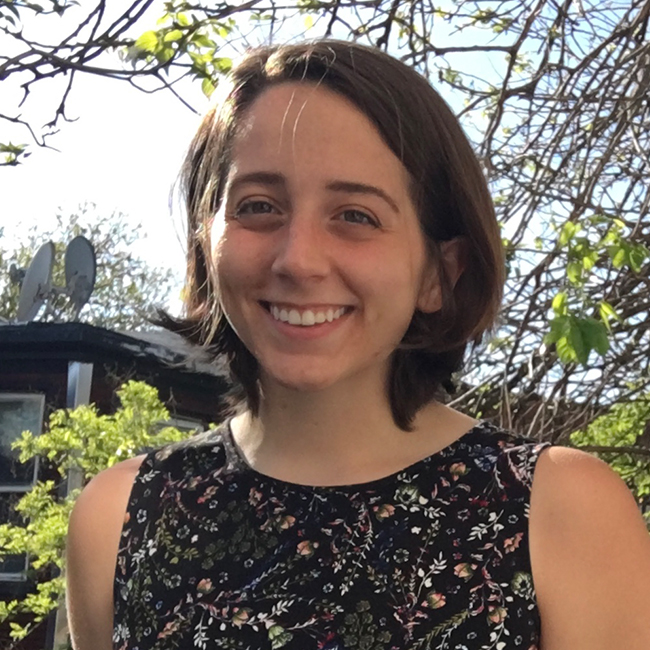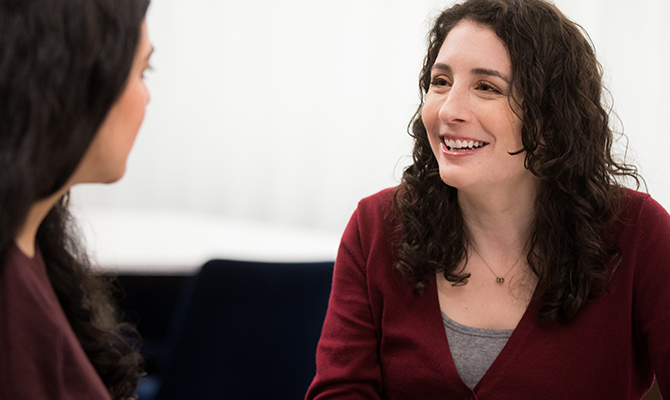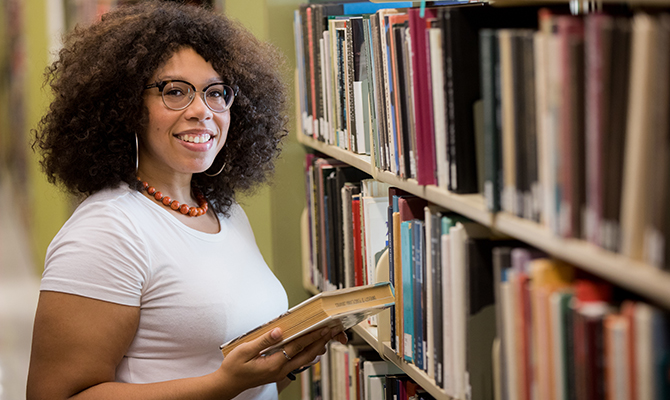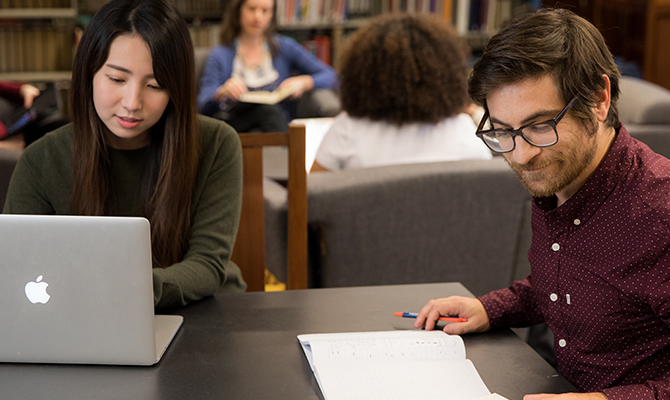
PhD candidate in cognitive neuroscience, University of California Irvine
Post-Baccalaureate Studies, University of Pennsylvania ’19
Bachelor of Science in Neuroscience, Psychology, and Philosophy, University of Chicago ’19
“When I was a kid, I just loved thinking about thoughts; thinking about how my thoughts worked and how they were structured,” reflects Nora Ashley Bradford, who was recently accepted to a PhD program in cognitive neuroscience. “Cognitive science is a deep field that can be studied at so many levels. You can study anything from a single protein in a brain cell to whole brain activity to philosophy of mind.” For Nora, cognitive science benefits when it can draw from many different disciplines—an interdisciplinary opportunity that she made the most of in her short term as a Post-Baccalaureate Studies student.
Nora came to Penn fresh from a multidisciplinary undergraduate degree in neuroscience, psychology, and philosophy; intending to eventually pursue a PhD program in clinical psychology, she sought to gain experience working with people as a research associate in a Penn lab that studies numerical cognition in adults and children. When she discovered Penn’s Post-Baccalaureate Studies program, she says, it seemed like a good opportunity to jump back into the classroom. “I missed being a student,” she laughs. “The post-bacc program is a really nice way to learn without committing to a long-term program, and you can explore topics that you might not be able to study if you do an undergrad or graduate degree in something specific.”
Because she was beginning to apply to graduate school programs, Nora worked with her academic advisor to choose the best course to enhance her transcript. “I was thinking about taking sign language, but getting good grades in a totally different subject isn’t all that helpful if you’re applying to grad school,” she explains. “So I took a neurolinguistics class, which looks at how language manifests itself in the brain.” (Incidentally, the course also explored the topic of sign language as an example of bimodal bilingualism: competency in both a sign language and a spoken language.) Of her small class, which included both undergraduate and graduate students, Nora says “I felt like I was right in the middle. I wasn’t super out of my depth, but I was also pushing myself—in a nice way.” The class also helped her refocus her graduate school ambitions: “I had thought that I wanted to do clinical psych, and I slowly realized that it wasn’t for me. The class helped me get excited about cognitive science and realize that's where my interests lie most.”
Even as a Penn student for one semester, Nora found that many enriching learning opportunities take place outside of the classroom. She emailed a philosophy professor whose course she was interested in taking, and the professor sent back her course syllabus and a stack of related readings. She picked up some coding skills at one of the non-credit tutorials available to students who are learning to work with data. She got involved with mindCORE, an interdisciplinary campus organization that offers speaker events, roundtables, professional development workshops, and even yoga sessions. After one such event, Nora found herself going out to dinner with the speaker and a group of scholars from a variety of departments. “There was a clinical psychologist there, and people from literature and philosophy and visual studies, and we were just sitting around the table having a really great discussion,” Nora recalls. “MindCORE is a really cool group and it was so nice to connect with them. I’ve become close with a lot of the people who are involved in it.”
In the next chapter of her academic journey, Nora will work with professors who specialize in numerical cognition, perception, and consciousness. “I really like being in academic settings because you end up being able to talk to so many different people in different disciplines,” she says. Beyond that, the future is open: “The nice thing about cognitive science is that there are so many different applications. UC Irvine graduates end up doing all different things in industry and education. I’m trying to keep my mind open.”






